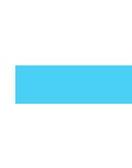The rise in blood sugar may be due to more than food intake. Pay attention to these alarming symptoms, if you find them, you should immediately see a doctor.
High blood sugar, or hyperglycemia, refers to a condition where the concentration of glucose in the blood becomes higher. It is important to be aware of the signs of high blood sugar and seek immediate medical attention if they occur frequently.
Where does blood sugar come from?
We get glucose from food; most foods raise blood sugar to a greater or lesser extent. Carbohydrates increase glucose levels most of all, but fats and even fiber also affect this level. For most people, high blood sugar levels are natural.
When you eat something sweet or full of carbohydrates, your pancreas starts producing insulin, which is a hormone needed to process glucose. Remains of glucose are stored in the liver, this is the body's energy reserve.
A healthy body independently regulates the concentration of glucose in the blood. However, if you have diabetes or insulin resistance, your body cannot produce as much insulin as it needs, and glucose cannot be processed properly. The following are the main signs of high sugar in women and men, if they are regularly detected, you should consult a doctor.
Signs of hyperglycemia
- Fatigue - constant fatigue, weakness, drowsiness are not a specific symptom, the condition is typical for both high and low blood sugar levels;
- Headache - figuring out which headache you're dealing with can be difficult. Any new chronic headache is a reason to talk to a doctor;
- Blurred vision - with an excess amount of glucose in the blood, its effect spreads to the retina, this is called diabetic retinopathy. As a result, a person sees everything blurry, dots or spots appear in front of his eyes;
- Frequent urination - excess glucose also affects the kidneys, they are responsible for removing excess fluid from the blood. Too high a glucose concentration damages the blood vessels in the kidneys, filtration becomes less effective, and the urge to urinate becomes more frequent;
- Increased thirst - intense thirst arises as a result of frequent urination;
- Other symptoms - trouble concentrating, dry mouth, increased hunger, confusion, shortness of breath, itching, and flaking of the skin - are also signs of high blood sugar.
If you have diabetes, you should follow the individual meal plan recommended by your doctor. Changes in condition come only with changes in lifestyle, this applies not only to nutrition, but also to physical activity. There is no universal diabetic diet, but there are general principles of nutrition - limiting sweets and increasing fiber intake.
The complexity of treatment will depend on various circumstances, primarily on the diagnosis - type 1 or type 2 diabetes. Therapy includes monitoring glucose and other blood and urine levels, nutritional management, exercise, and in some cases insulin therapy.
Diabetes is a difficult condition to manage; the earlier the disease is diagnosed, the higher the chances of maintaining the duration and quality of life. Therefore, when detecting signs of high blood sugar, one cannot remain indifferent.

